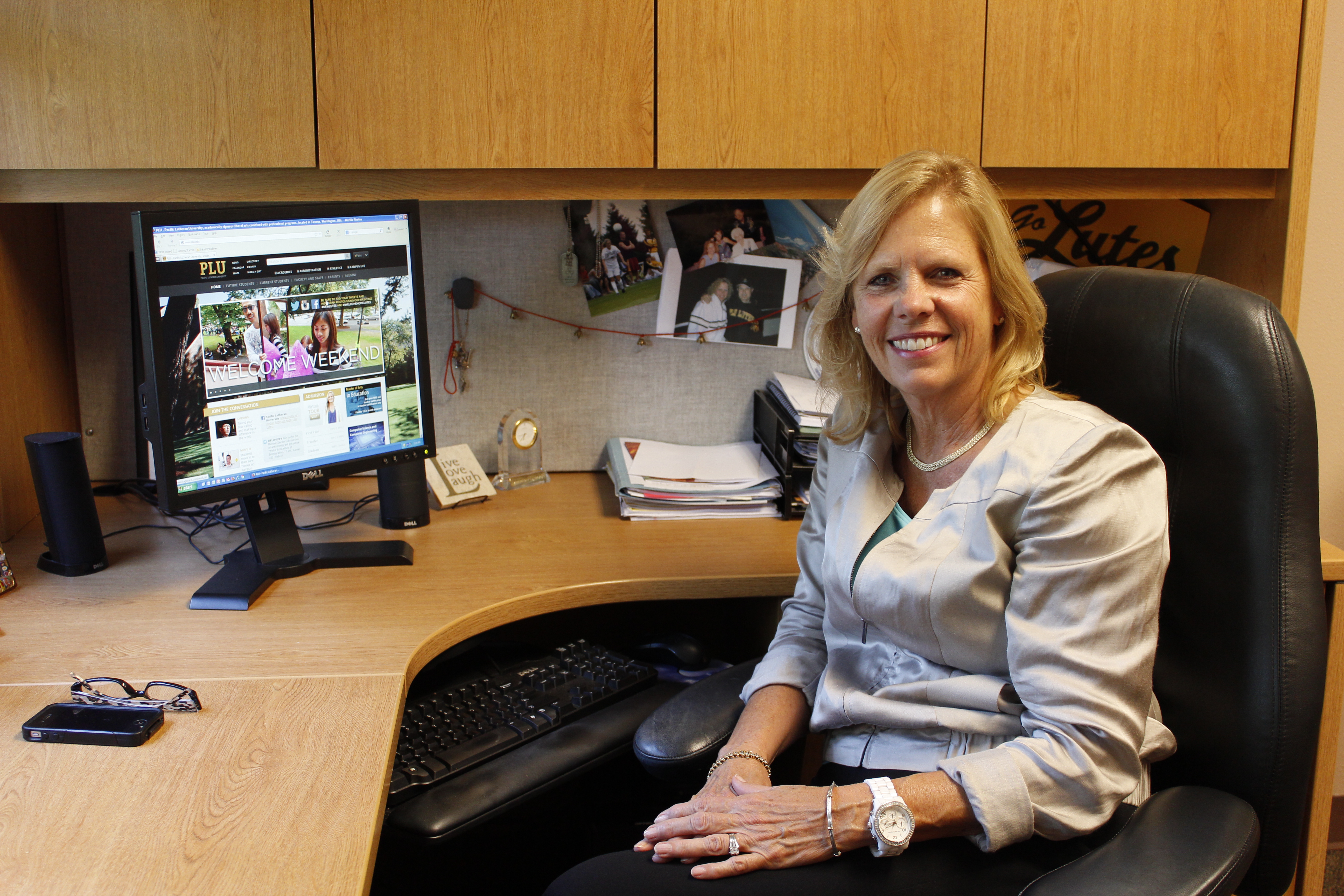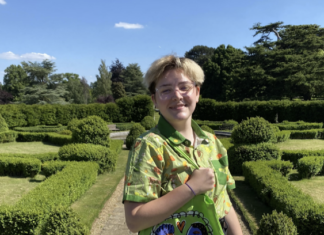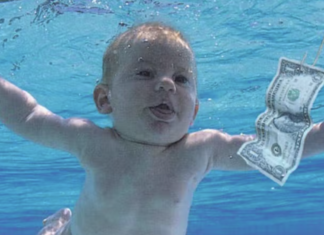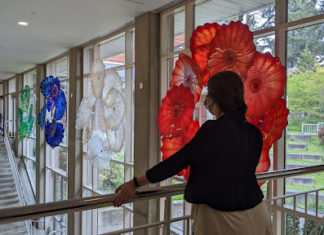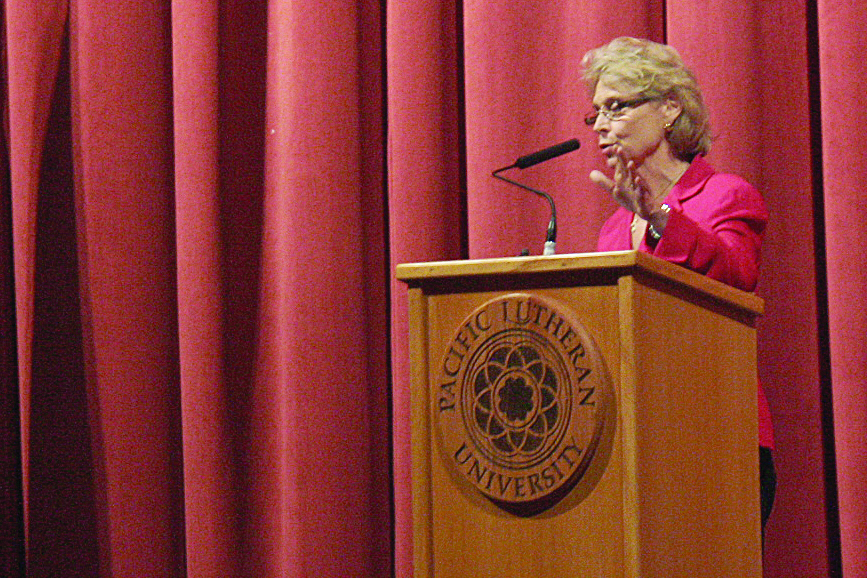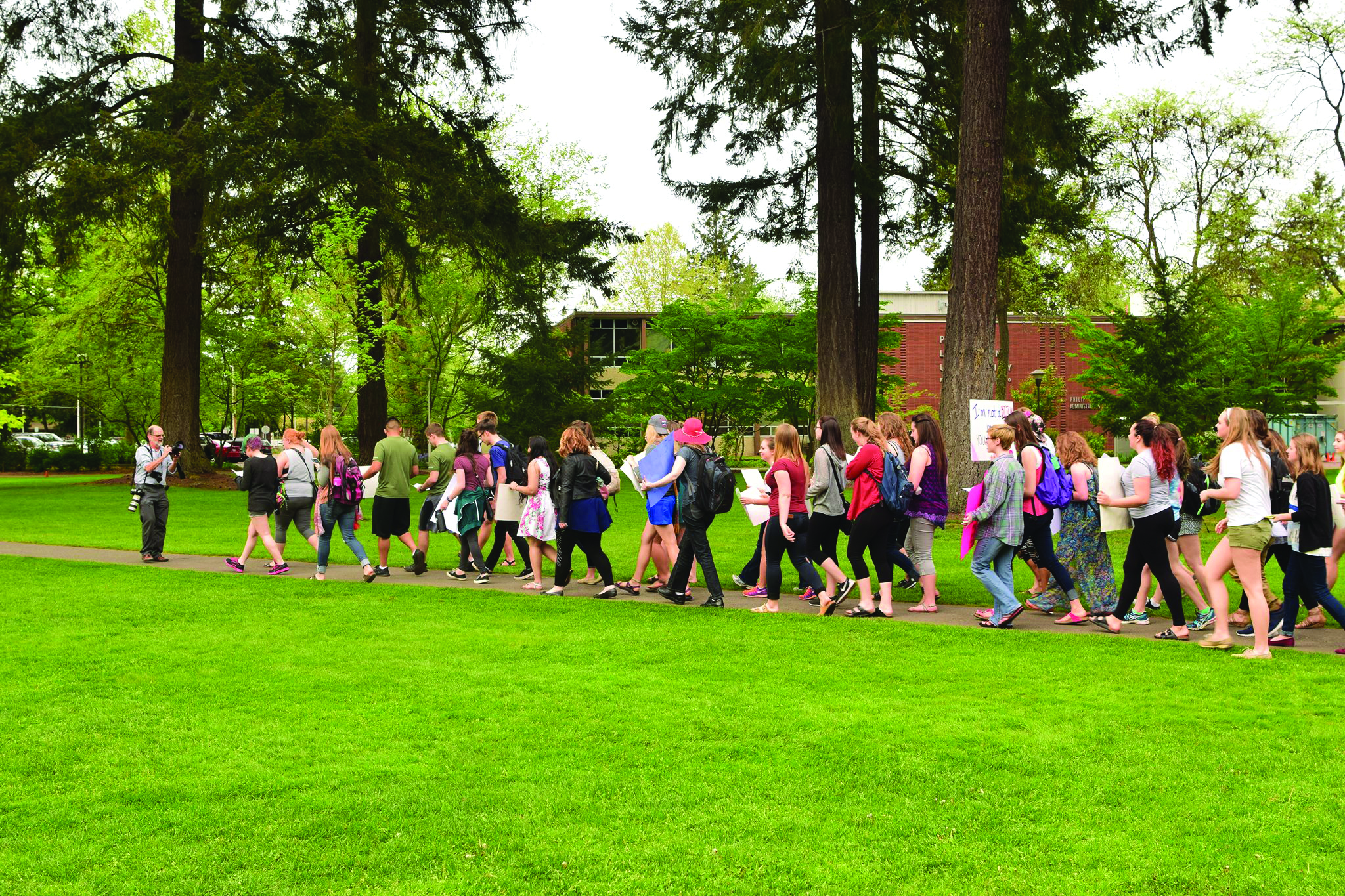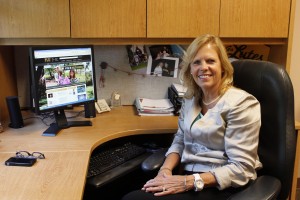
Students filter through the halls of Pacific Lutheran University, coming and going every year but leaving the university relatively unchanged. When long-term staff members leave the university, though, the campus feels the loss until other leaders take their place.
Vice President of Student Life Laura Majovski announced last summer that she will be retiring at the end of this academic year after a 22-year career at PLU. Fear not, though. She will still be around campus working part-time in a phased retirement program.
How did you wind up at PLU?
I came down here when my husband and I wanted to move out of California. We were looking for jobs in Washington, and I was made aware of the therapist position at the Counseling Center.
I had had a private practice for many years in California, so I applied for the job.
How did you work your way up from a school psychologist to being vice president of student life?
President Anderson [Loren Anderson] asked me one day — this must have been ’96, so I’d been four years in the Counseling Center — whether I’d have any interest in
coming over and serving as his assistant. I about fell off the couch.
When you get called into the president’s office, you don’t think it’s for good things. And I said, “but I don’t know anything about administration.” And he said, “it won’t matter. You’ve got a number of other skills that would be great and so just think about it.”
So, basically, I talked about it with my husband, and I always knew I could go back and be a psychologist, but I was never gonna get a chance again to go do something different. And so I was his assistant for three years.
Then the predecessor [the vice president of student life], Dr. Seevertson [S. Erving Seevertson] retired at 60, and we had a national search for candidates, and those just didn’t really work out, and the president asked then if I would take the job as an acting role. I said, ‘well, OK, I’ll take it as acting.’
I thought it was really hard, I wasn’t sure why anyone would want this job. And I still had young children. In June of ’99 I was made acting vice president, and in 2000 he [Anderson] made me permanent.
What are some of the roles and responsibilities you have as the vice president of student life?
Basically as vice president of student life and dean of students, which I am both of those titles, my conceptualization of that job is to support students and try to make their educational environment and experience as positive and as thriving as it can be. So their main work here on campus, which is getting their education, happens in the best way that it can happen.
We have a number of extracurricular programs, so really we’re supporting the educational outcomes that PLU really wants. And at the same time we’re supporting students with resources … so you’re helping students make the most of their out-of-classroom experience.
Do you have a favorite part about your job?
My favorite part is students. And my favorite part about this job is that no day is ever the same. And no year is ever the same, because universities are always changing, because the students are always different. We’re very different than we were 15 years ago when I started this job in some ways.
They’re [the students are] all still in the same universe of what’s valued at PLU.
Can you give one example of something you had to adapt to with the changing generations of students?
Social media. I try to keep up with it, and Lace Smith [assistant director of student involvement and leadership, technology and social media] is gracious enough to come over and give me little lessons, because I don’t do it as much as you all do. But we need to be relevant. We didn’t have websites when I started this job, it was all print.
At your time of retirement, you will have worked at PLU for 22 years.
Over a third of my life.
So what’s kept you here?
The people. I have terrific colleagues. You can’t do this type of work at a university by yourself. You can’t really make anything happen without colleagues who are willing to help. And then great students. PLU has a wonderful group of students that I get to work with.
What led to your decision to retire?
My husband is closer to 70 and PLU has a phased retirement program. I really wanted to work part-time, and this gives you a chance to work part-time to help contribute to the university still, but to step away from the full plate of responsibilities that I have.
What plans do you have for after you retire?
We’re still trying to figure out what I’ll do here, so I’m still pretty wide open. The president and I will be in conversation in spring about ways that I can help. I used to joke with people that I want to help the university photographer, because I love taking pictures of students and the campus.
What do you plan to accomplish before you retire?
We’re working in the division [of student life] to have as smooth of a transition as we can, so we’re working on revising our mission and vision statement for the division, and we are updating a strategic plan that we have so that the next person who comes in understands what it is this division’s about and what it’s trying to do.
What are you going to miss most about PLU?
I’ll still be here, but I won’t be around the leadership table. That’s got pros and cons — you don’t have as much responsibility, but you’re also not in the know as much about what’s going on. PLU’s a very complex organization. But I’ll find other ways to support it.
Is there anything else you’d like to add?
It’s been a great job. It’s been a privilege to be in this role. I’m glad I had the opportunity.

















